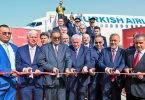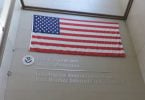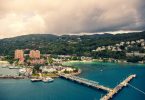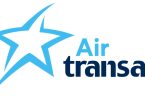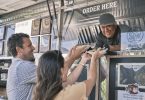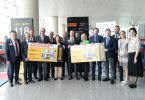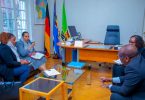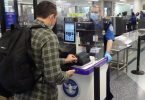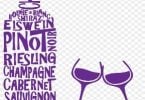How do we sensibly and effectively restart travel and tourism, the industry that employs 1 in 10 workers globally? This is a workforce that has been decimated by the COVID-19 pandemic. How will Asia prepare for recovery?
جي مطابق عالمي سفر ۽ سياحت ڪائونسلWTTC) گذريل سال 2019 ۾ سفر ۽ سياحت جي سڌي، اڻ سڌي ۽ حوصلي واري اثر جي حساب سان:
- دنيا جي جي ڊي پي ۾ 8.9 ٽريلين آمريڪي ڊالر جو حصو
- عالمي جی ڊي پي جو 3 سيڪڙو
- 330 ملين نوڪريون، سڄي دنيا ۾ 1 ۾ 10 نوڪريون
- يو ايس ڊالر 1.7 ٽريلين دورو ڪندڙ برآمدات (مجموعي برآمدات جو 6.8٪، عالمي خدمتن جي برآمدات جو 28.3٪)
- آمريڪي $948 بلين سرمائيداري سيڙپڪاري (مجموعي سيڙپڪاري جو 4.3٪)
Tourism recovery is the no.1 topic and all sections of our industry are looking and learning.
The plethora of webinars popping up with recovery and “next step” discussions is testament to the energy and interest in getting back to work.
But are webinars useful? Earlier this week respected publisher Don Ross (TTR Weekly) suggests that webinars often fall short in good common sense. “Since the COVID-19 pandemic banished us all to our homes to live under lockdown, we are inundated with promotions for webinars that promise to navigate the travel industry back from the brink to a new norm. The deluge of webinars promises to show us the way forward, but so often when we tune in to the talkfests, they fluff on the details. They avoid the obvious and concentrate on the obscure, I suspect we attend webinars hoping the experts can offer some old fashioned common sense to help us survive the financial storm,” he wrote.
سياحت واري صنعت کي ڪورونا وائرس کان وڏو ڌڪ رسيو آهي، UNWTO 450 بلين آمريڪي ڊالر جو نقصان. وائرس سڄي دنيا ۾ گهٽ ۾ گهٽ 3.48 ملين ماڻهن کي متاثر ڪيو آهي ۽ 244,000 کان وڌيڪ مارجي ويا آهن. مٿين سياحتي منزلون جهڙوڪ آمريڪا، اسپين، اٽلي ۽ فرانس انهن ملڪن ۾ شامل آهن جن ۾ سڀ کان وڌيڪ انفيڪشن آهن.
People will only travel again if they feel it is safe to do so – this was best expressed by Don Ross again when he wrote:
“In the COVID-19 world, common sense dictates we will travel when it is safe and when we have the spare cash. That’s what we are not addressing in webinars. The pandemic is breaking the bank for everyone, but how will we ensure health safety in order to reboot travel?”
Skål International جي ذهنن ۾ وصولي تمام گهڻي آهي UNWTO. لاڳاپيل ميمبرن جو بورڊ، جنهن ۾ اسڪال انٽرنيشنل جي سي اي او، ڊينيلا اوٽيرو، هڪ ميمبر آهي، بحث ڪري رهيو آهي ته سياحت جي شعبي لاءِ ردعمل ڪيئن ٺاهيو وڃي، خاص طور تي بحالي واري مرحلي ۾ ۽ حڪومتن کي ڪهڙيون ترجيحون غور ۾ رکڻ گهرجن. .
تي ڪم اڳ ۾ ئي جاري آهي UNWTO صنعت جي سڀني شعبن تي لاڳو ٿيندڙ ممڪن طور تي ٻيهر کولڻ واري پروٽوڪول جي پهرين مسودن تي، نوٽ ڪيو ته هڪ ڀيرو حڪومتون اجازت ڏين ٿيون، اهو ضروري هوندو ته جلدي عمل سان اڳتي وڌو ڇو ته سياحت COVID-19 ۽ ان جي نتيجن جي ڪري سخت متاثر ٿيندڙ صنعتن ۾ شامل آهي.
هن UNWTO اندازو آهي ته هن سال سڄي دنيا ۾ بين الاقوامي سياحن جي آمد جو نقصان 30 سيڪڙو گهٽجي سگهي ٿو.
هن UNWTO ياد رهي ته سياحت ماضي جي بحرانن، روزگار ۽ آمدني پيدا ڪرڻ جي نتيجي ۾ بحالي جو هڪ قابل اعتماد ڊرائيور رهيو آهي. سياحت، سياحت UNWTO رياست،
"وڏيون وسيع فائدا آهن جيڪي هن شعبي کي منتقل ڪري چڪا آهن، ان جي وسيع بنياد تي اقتصادي قدر جي زنجير ۽ گہرے سماجي نقشن کي ظاهر ڪري ٿو."
تقريباً 80 سيڪڙو سياحت جو ڪاروبار ننڍا ۽ وچولي درجي جا ادارا (SMEs) آهن، ۽ اهو شعبو عورتن، نوجوانن ۽ ڳوٺاڻن برادرين لاءِ روزگار ۽ ٻيا موقعا فراهم ڪرڻ ۾ اڳڀرائي ڪري رهيو آهي ۽ سياحت ۾ نوڪريون پيدا ڪرڻ جي وڏي گنجائش آهي. بحران جي حالتن کان پوء.
موجوده بحران جي شروعات کان وٺي، UNWTO هن شعبي جي رهنمائي ڪرڻ لاءِ ورلڊ هيلٿ آرگنائيزيشن (ڊبليو ايڇ او) سان گڏ ڪم ڪري رهيو آهي، ٻنهي اعليٰ سطحي اڳواڻن ۽ انفرادي سياحن لاءِ اهم سفارشون جاري ڪندي.
To rebuild and restart travel we are so dependent on air uplift. Once airlines start flying again the industry can recover. How long that will take is widely discussed.
PATA جي سي اي او ڊاڪٽر ماريو هارڊي چيو، ”هر ڪنهن جي ذهن ۾ نمبر هڪ سوال اهو آهي ته، اسان جي صحتياب ٿيڻ کان ڪيترو وقت اڳ؟ اهو جواب ڏيڻ لاءِ ڪو آسان سوال ناهي.”
Asia, he believes, will deliver the largest rebound in travel to the Asia Pacific region in 2021, according to the updated forecast released by PATA. Their research claims visitors should deliver 610 million visitor arrivals in 2021 (of which 338m are inter-regional). A growth in total visitor arrivals of 4.3% compared to 2019 (585m).
بين الاقوامي سياحن جي آمد (IVAs) ۾ واڌ جو امڪان آهي ذريعن جي علائقن جي لحاظ کان مختلف آهي، ايشيا جي توقع آهي ته 2019 جي ڀيٽ ۾ تيز ترين ترقي جي شرح سان گڏ.
2021 ۾ متوقع بحالي واري مرحلي دوران، ايشيا کي خاص طور تي بهتر آمدن جا انگ پيدا ڪرڻ گهرجن، 104 ۽ 2019 جي وچ ۾ 2020 ملين سياحن جي نقصان کان 5.6 جي ڀيٽ ۾ 338٪ تائين 2021m تائين وڌي وڃي.
اهو سڀ ڪجهه سادو نه هوندو. اسان سياحن لاءِ دنيا جي چوڌاري مقابلي کي منهن ڏينداسين، ۽ اسان جي باقاعده سياحن - جن ۾ مکيه زمين چين کان شامل آهن.
Hong Kong Tourism Board chairman Pang Yiu-kai noted that while it was difficult to predict when the industry would recover from the COVID-19 pandemic, a V-shaped rebound was impossible in the face of restrictions overseas and flight suspensions.
What was certain he said was that every market would spend hundreds of millions of dollars, or even billions, to chase after tourists as the pandemic had paralyzed global travel and battered the industry since February, he said.
”سياحت جي منظرنامي کي نئين شڪل ڏني ويندي ، اتي هڪ نئون معمول هوندو ،“ HK سياحت جي سربراهه پنهنجي سالياني ڪانفرنس دوران 1,500 انڊسٽري اسٽيڪ هولڊرز کي چيو.
پينگ اهو پڻ چيو ته مارڪيٽ جي تجزيي جي بنياد تي، سرزمين جا سياح ۽ جيڪي گهٽ-هلندڙ مارڪيٽن مان آهن، گهريلو سفر ڪندا جلد ئي وبائي مرض جي مرڻ کان پوءِ. موڙ ڦرندو.
هن چيو ته وبائي مرض کان پوءِ جي بحالي 2003 ۾ سخت شديد تنفسي سنڊروم (SARS) جي وبا کان پوءِ ان جي ابتڙ هوندي.
“In 2003, the SARS outbreak was mainly in Hong Kong. For COVID-19, the whole world is affected,” Pang said.
Although economic activities had gradually resumed across the border and people were returning to work, mainland travelers would place greater emphasis on health and nature after months of confinement, Pang said agreeing with our earlier comments from Don Ross.
“When choosing destinations for future trips, they will be more price conscious and will favor those that pose low risks to health,” he said. “The MICE market on the mainland has slowed down and activities have been held online or postponed.”
“Regionally, young and middle-aged Japanese, Koreans and Taiwanese would be the most eager to travel but would favor short-haul trips because of financial and holiday leave constraints,” he said.
Long-haul travel would take longer to recover, and Hong Kong’s outbound sector might not resume until the last quarter of this year, he added.
ايگزيڪيوٽو ڊائريڪٽر ڊين چينگ ٽنگ-يات چيو ته HK بورڊ 400 ملين HK ڊالر (1.66 بلين baht) رکيا آهن صنعت جي مدد لاءِ ٽن مرحلن واري طريقي سان.
اهو في الحال پهرين اسٽيج جي طور تي هڪ وصولي منصوبو ٺاهي رهيو هو.
سياحت هانگ ڪانگ جي چئن ستون صنعتن مان هڪ آهي، جيڪا 4.5 ۾ مجموعي گھربل پيداوار ۾ 2018 سيڪڙو حصو ڏئي ٿي.
ليکڪ بابت

Andrew J. Wood was born in Yorkshire England, he is a professional hotelier, Skalleague and travel writer. Andrew has over 40 years of hospitality and travel experience. He is a hotel graduate of Napier University, Edinburgh. Andrew is a past Director of Skal International (SI), National President SI Thailand and is currently President of SI Bangkok and a VP of both SI Thailand and SI Asia. He is a regular guest lecturer at various Universities in Thailand including Assumption University’s Hospitality School and the Japan Hotel School in Tokyo.
#بحالي سفر





